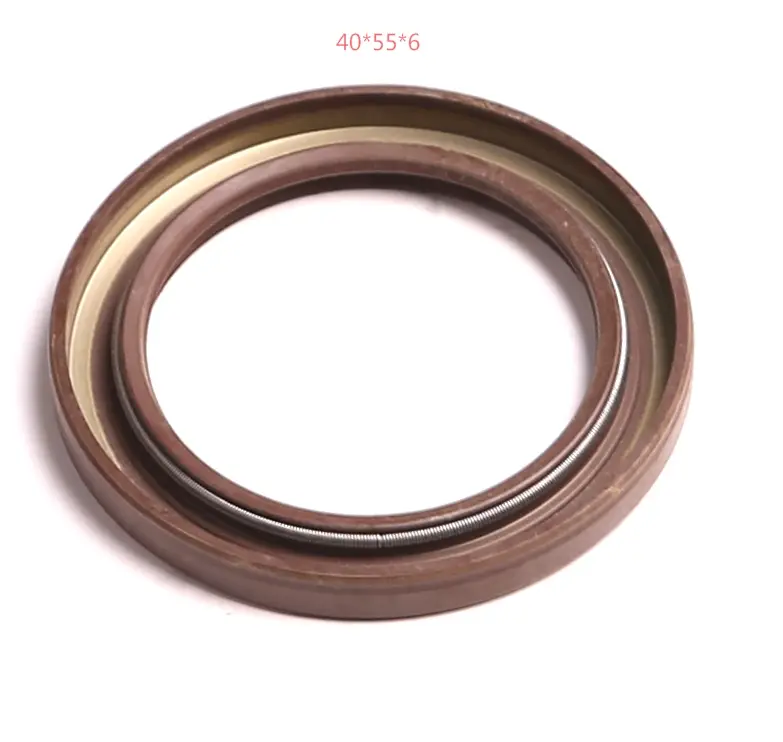12 月 . 03, 2024 16:36 Back to list
synthetic rubber gasket
Synthetic Rubber Gaskets A Comprehensive Overview
Gaskets play a crucial role in various industrial applications by providing a reliable seal between two or more surfaces. Among the different types of gaskets available, synthetic rubber gaskets are widespread due to their versatility, durability, and resistance to a wide range of environmental factors. This article delves into the characteristics, advantages, manufacturing processes, and applications of synthetic rubber gaskets.
Characteristics of Synthetic Rubber
Synthetic rubber is produced through the polymerization of monomers, which allows for the creation of various compounds with distinct properties. Some of the most commonly used synthetic rubbers in gasket manufacturing include Styrene-Butadiene Rubber (SBR), Ethylene Propylene Diene Monomer (EPDM), and Nitrile Butadiene Rubber (NBR). Each type of synthetic rubber exhibits unique characteristics, making them suitable for different applications.
1. SBR Known for its excellent abrasion resistance, SBR is commonly used in automotive applications and general-purpose sealing. 2. EPDM This rubber has superior resistance to heat, ozone, and weathering, making it ideal for outdoor applications. 3. NBR Renowned for its oil and fuel resistance, NBR is commonly used in the automotive and industrial sectors where exposure to petroleum-based substances is frequent.
Advantages of Synthetic Rubber Gaskets
Synthetic rubber gaskets offer several advantages over their traditional counterparts, such as those made from natural rubber or cork
. Some notable benefits include1. Durability Synthetic rubber gaskets are designed to withstand extreme temperatures and harsh chemicals, providing a longer service life. 2. Customization The manufacturing process allows for the creation of gaskets in various shapes, thicknesses, and sizes, catering to specific needs and applications. 3. Resistance They demonstrate excellent resistance to water, oil, and gases, making them suitable for applications in diverse industries such as automotive, aerospace, and manufacturing. 4. Cost-Effectiveness Synthetic rubber is generally more affordable than natural rubber, and its longevity can result in lower replacement and maintenance costs over time.
synthetic rubber gasket

Manufacturing Processes
The production of synthetic rubber gaskets involves several steps, ensuring that the final product meets both quality and performance standards. The key processes include
1. Compounding Raw synthetic rubber is mixed with additives, including fillers, antioxidants, and curing agents, to enhance its properties. 2. Molding The compounded material is then shaped into gasket forms using methods such as compression molding, transfer molding, or extrusion, depending on the desired design. 3. Curing This process involves heating the molded gaskets to initiate a chemical reaction that solidifies the material, resulting in a robust final product. 4. Quality Testing Each batch undergoes rigorous quality control tests to ensure adherence to industry standards, including tensile strength, elongation, and resistance to environmental factors.
Applications of Synthetic Rubber Gaskets
Synthetic rubber gaskets have a wide range of applications across numerous industries, including
1. Automotive Industry Used in engines, fuel systems, and transmission components, synthetic rubber gaskets help prevent leaks and maintain optimal performance. 2. Aerospace Industry Gaskets in aircraft fuel systems and environmental control systems require excellent sealing properties and resistance to extreme temperatures. 3. Manufacturing and Machinery In equipment and machinery, synthetic rubber gaskets are vital in preventing leaks and protecting against dirt and moisture contamination.
Conclusion
Synthetic rubber gaskets are an indispensable component in many industrial sectors due to their durability, versatility, and resistant properties. Their ability to withstand harsh conditions while providing reliable sealing makes them a preferred choice for engineers and manufacturers. As technology advances and synthetic rubber formulations improve, the future of synthetic rubber gaskets looks promising, with continued innovations catering to the ever-evolving needs of various industries.